Cornus amomum, silky dogwood, is a native deciduous multi-stemmed shrub to small tree. There are several species of dogwood in NJ. A few features are given here to help with identification. Silky Dogwood blooms in late spring to early summer. The scientific name, Swida amomum, is frequently used
Flowers
Inflorescence - flower cluster:
The silky dogwood flower clusters are terminal (at the tips of branches). The clusters are flat topped to slightly domed and are about 1-3" across. This shape of the cluster helps distinguish silky dogwood from other dogwoods. Photos from left to right - side view, top view.
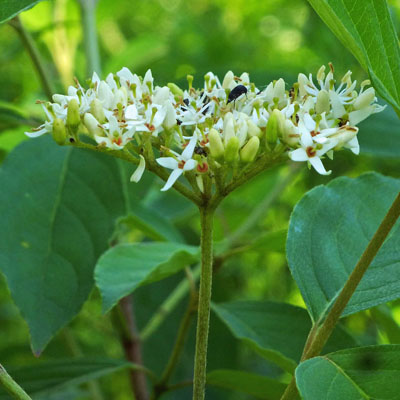
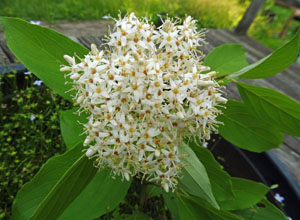
Individual flowers:
The flowers are creamy white and about 3/8 inches wide with 4 petals and 4 stamens. The style is long with a conspicuously expanded greenish tip . .
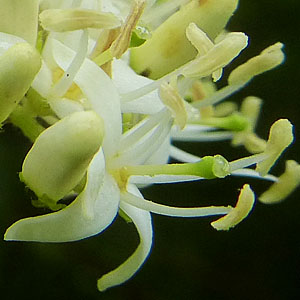
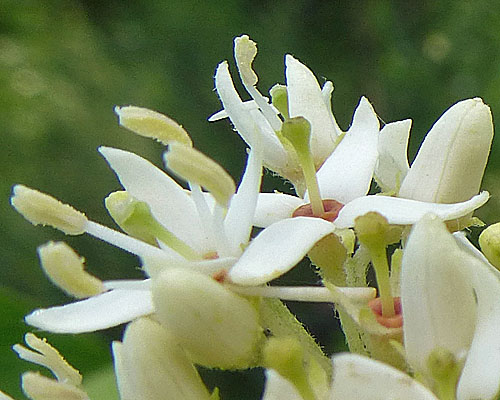
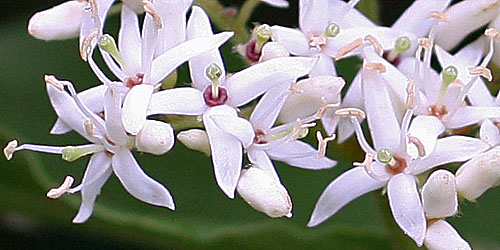
Fruit
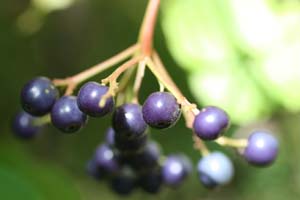
The silvery blue berry-like drupes of silky dogwood helps distinguish it from other dogwoods. The drupes are about ¼ inch in diameter. The stalks are green or reddish. The clusters usually hang downward. The fruits are first white and then mature to the blue in late summer.
Leaves and Plant
The leaves are simple and opposite with prominent curved lateral veins as in all dogwoods. Silky dogwood has 4 or 5 veins per side. The leaf tip tapers quickly to a point, the base is rounded or tapered. In the fall the leaves turn beautiful reddish color. The shrub grows to about 6-10 ft.
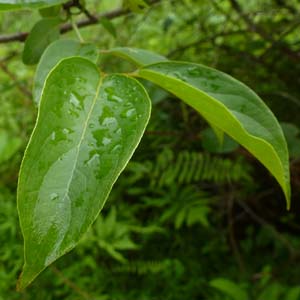
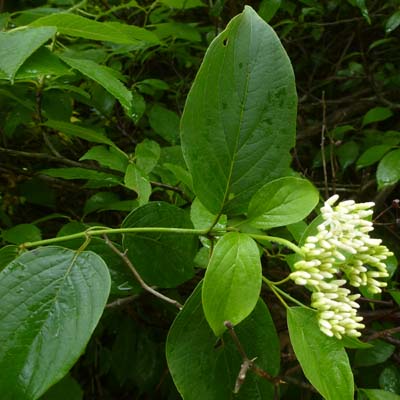
The leaves are hairy on both the upper and lower surfaces, more so on the underside. When the flowers are gone, identification is more difficult.
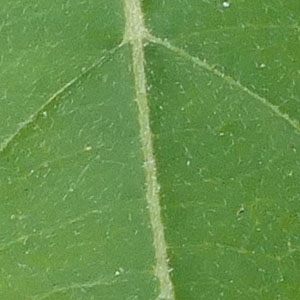
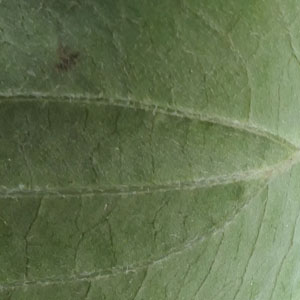
Fall colors. The winter bark can be red as shown in the last photo as well as brown, gray or purple.
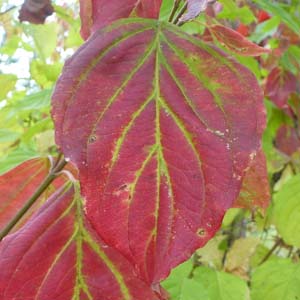
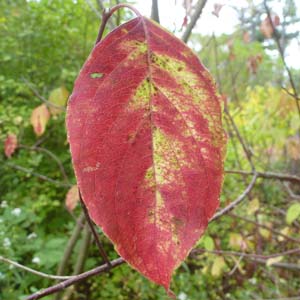
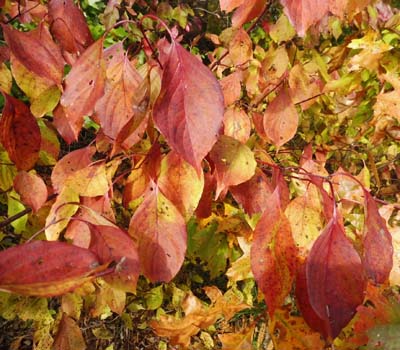
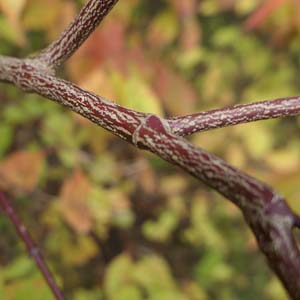
Text by Millie Ling and all photos by Hubert & Millie Ling: flowers - June, fruit - September, fall leaves - October, in cultivation and Omick Woods Preserve, NJ
Cultivation
The cultivation material below is courtesy of
Jersey Friendly Yards searchable plant database: Cornus amomum
This shrub is easy to transplant. Use in woodland gardens or in naturally moist areas of the yard, such as rain gardens or along ponds or streams.
Salt Tolerance: Low to None
Soil Type: Loam, Organic, Sandy, Clay
Soil Moisture: Medium-drained, Wet
Soil pH: Acidic, Slightly Acidic, Neutral
Optimal Light: Partial Shade
Light Range: Full Sun, Partial Shade, Shade
Drought Tolerance: Low
Growth Rate: Medium
After the plant gets large it may spread by suckering.
Additional information
Additional information / references:
The USDA website shows its distribution in the US and other information,
https://plants.usda.gov/core/profile?symbol=COAM2
Go Botany indicate species that are very similar and feature variations:
https://gobotany.nativeplanttrust.org/species/swida/amomum/
Good gardening information: Jersey Friendly Yards
https://www.jerseyyards.org/plant/cornus-amomum/
Minnesota Wildflowers has good descriptions of the plant parts:
https://www.minnesotawildflowers.info/shrub/silky-dogwood